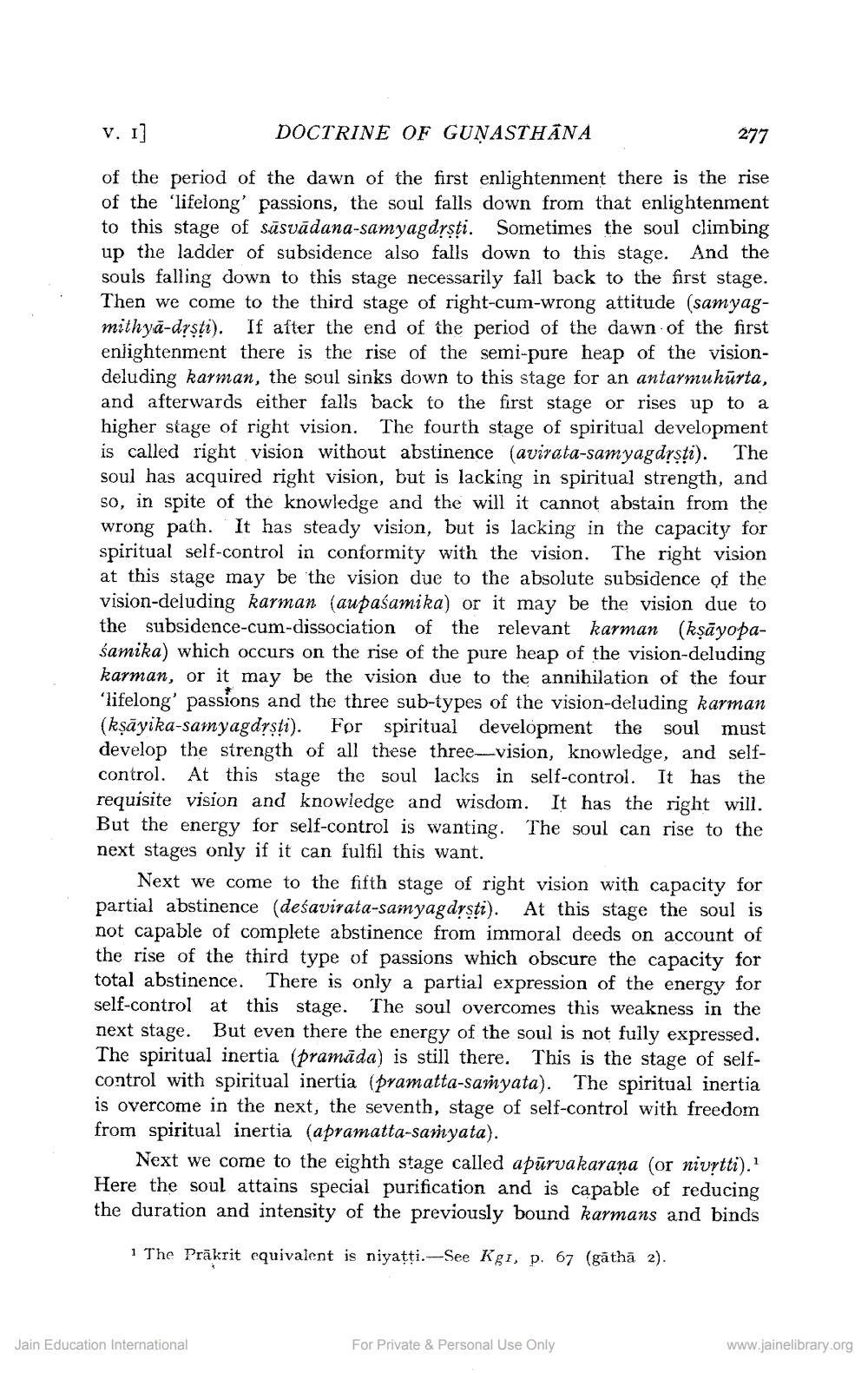________________
V. 1]
DOCTRINE OF GUŅASTHANA
277
of the period of the dawn of the first enlightenment there is the rise of the 'lifelong' passions, the soul falls down from that enlightenment to this stage of sāsvādana-samyagdrsti. Sometimes the soul climbing up the ladder of subsidence also falls down to this stage. And the souls falling down to this stage necessarily fall back to the first stage. Then we come to the third stage of right-cum-wrong attitude (samyagmithya-dysti). If after the end of the period of the dawn of the first enlightenment there is the rise of the semi-pure heap of the visiondeluding karman, the soul sinks down to this stage for an antarmuhūrta, and afterwards either falls back to the first stage or rises up to a higher stage of right vision. The fourth stage of spiritual development is called right vision without abstinence (avirata-samyagdrsti). The soul has acquired right vision, but is lacking in spiritual strength, and so, in spite of the knowledge and the will it cannot abstain from the wrong path. It has steady vision, but is lacking in the capacity for spiritual self-control in conformity with the vision. The right vision at this stage may be the vision due to the absolute subsidence of the vision-deluding karman (aupaśamika) or it may be the vision due to the subsidence-cum-dissociation of the relevant karman (ksāyopaśamika) which occurs on the rise of the pure heap of the vision deluding karman, or it may be the vision due to the annihilation of the four lifelong' passions and the three sub-types of the vision-deluding karman (kṣāyika-samyagdysti). For spiritual development the soul must develop the strength of all these three-vision, knowledge, and selfcontrol. At this stage the soul lacks in self-control. It has the requisite vision and knowledge and wisdom. It has the right will. But the energy for self-control is wanting. The soul can rise to the next stages only if it can fulfil this want.
Next we come to the fifth stage of right vision with capacity for partial abstinence (deśavirata-samyagdysti). At this stage the soul is not capable of complete abstinence from immoral deeds on account of the rise of the third type of passions which obscure the capacity for total abstinence. There is only a partial expression of the energy for self-control at this stage. The soul overcomes this weakness in the next stage. But even there the energy of the soul is not fully expressed. The spiritual inertia (pramāda) is still there. This is the stage of selfcontrol with spiritual inertia (pramatta-samyata). The spiritual inertia is overcome in the next, the seventh, stage of self-control with freedom from spiritual inertia (apramatta-sarnyata).
Next we come to the eighth stage called apūrvakarana (or nivytti). Here the soul attains special purification and is capable of reducing the duration and intensity of the previously bound karmans and binds
1 The Präkrit equivalent is niyaţti.-See Kg1, p. 67 (gäthā 2).
Jain Education International
For Private & Personal Use Only
www.jainelibrary.org




